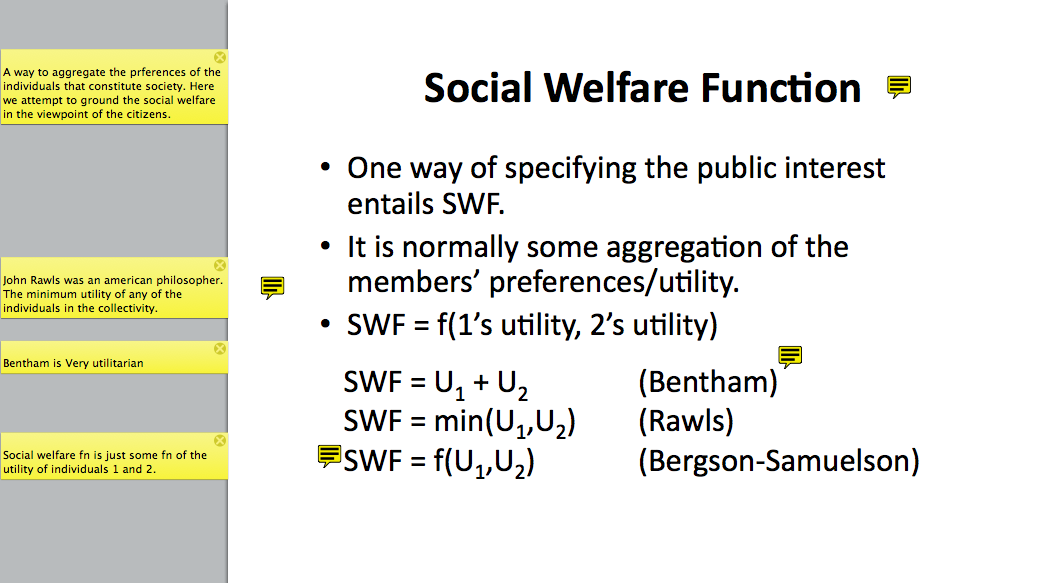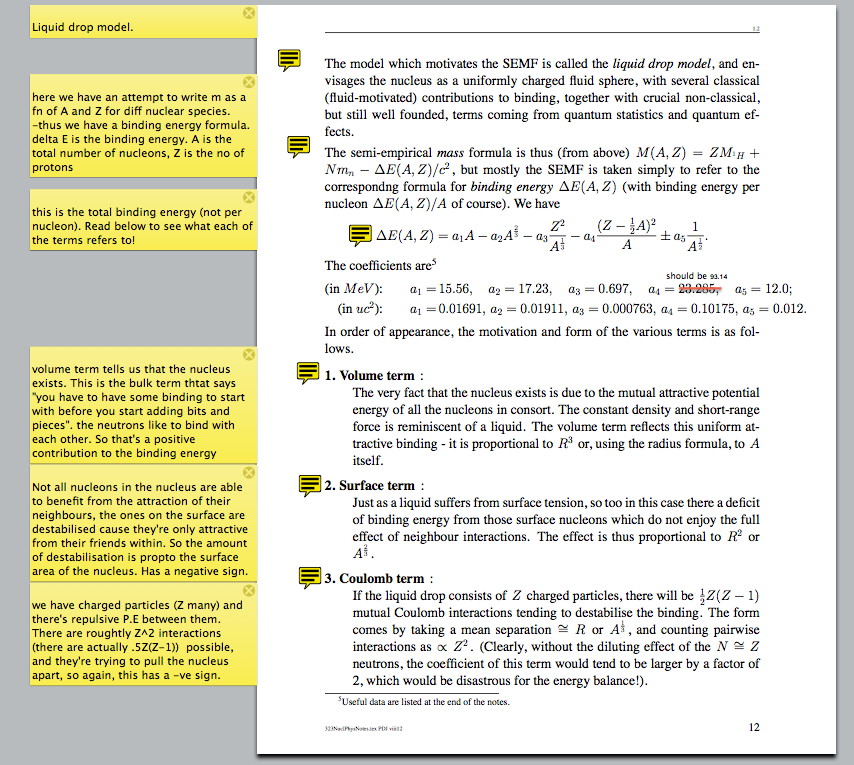This post follows on from the post about Acquire: The second of the 5 steps of efficient learning. In that article it was suggested that note taking is a necessary skill to develop, especially when you are required to be conducting your learning in a live learning situation (such as a class or lecture, where you can't pause the teacher!). Depending on the quality of your lecturer and the difficulty of the subject you could span all 5 steps of efficient learning in just on lecture and come out with a great understanding. But if the subject is hard enough and/or the lecturer isn't that good, you may only be able to complete the first step, survey.
Successful note taking for everyone will look different. In the following I share the method that I've come up with that best suits me and really helped me to get through my double degree in Economic Analysis and Physics. This post steps you through a series of note taking exercises, first getting you to try your current method, then explaining my technique, and finally giving you a chance to practice my technique. I encourage you to give this technique, as well as many others, a go and to find what works for you. I'll note that I developed this technique primarily to deal with lectures in which A LOT of content was covered and often in not such a clear way. As such, I consider it to be quite a resilient approach.
Exercise 1, have a crack
The idea of this exercise is for you to just take notes in the way that you normally would whilst you watch this clip on turning points. Here is the first video (also below) , do your best to take notes whilst you watch it (without pausing it, this is meant to be simulating a live learning situation).
Reflect on how your note taking went. How did you feel when you were taking the notes? on top of things? confused? If someone else looked at your notes now would they make any sense? more importantly: if you look at your notes tomorrow will they make any sense to you? Were you actually taking in anything of what I (on the video) was saying or were you just rushing to try to get it onto the page?
The idea of the note taking technique that I describe in the following is to help you to sit back and relax a bit more in class. To take in the content in a less stressful manner and to come out understanding more and with the power to study more successfully.
How I take notes
Throughout school and the early stages of my uni degree I had a lot of trouble taking notes. There was always far too much going on, the lecturer was talking and writing at the same time, how was I supposed to write that fast!? Or even worse, they had a heap of powerpoints that they were just flicking through at lightning speed. I'd often get lost in the maths that they were doing and leave lectures with a page full of stuff that didn't make sense and not much in the way of understanding either….
Eventually I came up with a solution… listen for key points and phrases. I came to the conclusion that I would inevitably get lost in the maths if I tried to copy it down at the speed of the lecturer and what I was better off doing was to listen out for the conceptual reasoning behind the maths (I refer to maths because it's the mathematical elements of my Physics degree that I got confused about most frequently). This would would then allow me to go home and work through a similar problem myself and actually understand what I was doing. I began to type my notes instead of hand write them* and to listen for key take home messages. I found that within hours I was understanding better and feeling better about attending class.
Another point that backed this method up was (at uni at least) the lecturer would often make their working available online. If they didn't, I would just sit at the front of class and use my phone to take a photo of their working on the board. Failing that I'd just ask a friend (who could write fast and had neat handwriting) if I could take a photo of their notes of all of the working and I would tell them the key points that I had taken away from the lesson. Double win, you get your key points and all the notes, and your mate is happy too : )
IMPORTANT POINT! You're not always going to understand what the lecturer is saying. That's O.K. It's something we have to accept. When this happens, take a deep breath and reframe the lecture in your mind. Think of it as a survey and see your task as note-taker to identify the key concepts and links between them that will allow you to build on the picture after class. This happened to me many times in Physics. See the bottom of this post entitled ‘when you have no idea what they're talking about' for more info on how to deal with such a situation.
Here is a video (also below) of me applying this listen for key points and phrases technique to the video in exercise 1. Hopefully it will give you a good idea of what this note taking technique looks like.
* (This note taking technique somewhat relies on the fact that you can type faster than you can hand write, if that's not correct you can just use the same ‘listening' technique and hand write. But I strongly suggest developing touch typing abilities, it's a life skill).
Exercise 2, apply the new technique
Now's your chance to practice the note taking technique. Here's a video with another mini lesson, this time on linear graphs and break even points. Do your best to apply the new note taking technique. (Reminder: Type your notes, you're listening for key phrases and key take home points). At the end of the video I explain what a good set of notes from this lesson could have looked like. Here's the video (also below)
A few more things to ‘note'
As mentioned at the start, note taking is a very personal thing and what works for one person won't necessarily work for another. For more info on note taking and to see other people's techniques see this lifehacker article or check out other articles like this one on flow based note taking by Scott Young.
My University Note Taking Technique in More Detail: At Uni sometimes lecturers make powerpoints/lecture slides available before class (if they don't, ask them if they can!) This is even better, and this was the case when I was studying my undergraduate degree. I would ensure that I saved the slides as a PDF prior to lecture then open them in preview or adobe and use the annotation tool to make notes right there on the pdf during lecture. Here's a quick video of me showing you an example of some of my notes taken in this way.
This picture below is of the annotations I made on a particular lecture slide during one economics lecture.
You can see that the terminology on this slide is pretty confusing, so with the yellow stickies I wrote all the stuff that the lecturer said relating to this slide that seemed to make sense to me and/or seemed to be important. I would then go home and turn these notes into a summary. The summary for this particular slide looked like this.
As can be seen, the slide was greatly compressed with only the key info that I needed for the test remaining. A more extreme example of dealing with difficult content can be seen in the following.
When you have no idea what they're talking about…
As mentioned previously, there would often be times when we cover so much content in a lecture that I had no chance of understanding it first time around. In this case I would take notes as comprehensively as I could and then would go back through those notes on Saturday morning and give myself 2 hours to turn them into more structured notes (ie: 2 hours to go over the week's 3 hours worth of lectures). That was for physics anyway. Here's an example of one of those “I have no idea what he's talking about” slides from a unit on Nuclear Physics…
It's important for me to emphasise at this point that a significant portion of what I wrote down during lecture (in the above image), I probably didn't understand at the time. That's O.K. What I was doing was collecting the best and most relevant information to make it easier for me to understand the content later on. And it worked. As I learnt more and more I would often go back to my previous notes and see one of those yellow tabs and suddenly it would make so much sense. But at the first encounter I simply didn't have the background knowledge required to order to comprehend the information at the rate at which it was being taught.
Why do I tell you all this? Because I want to make it clear that sometimes learning is hard. Really really hard, and to just let you know that it's OK to not be able to understand something first go. If you do understand everything first go, it's probably just a sign that you're learning adventures aren't challenging you enough. No matter who you are, if you keep pushing yourself there will be a time in your life when you hit a learning wall. Being comfortable with that and having patience to break through it is what Angela Duckworth talks about when she speaks of grit, and it's arguably the most important skill that you can develop. Good luck with your notes!
For how to get from taking notes to deep understanding, see the post Understand: The third of the 5 steps of efficient learning.
Edit: I just found this amazing article on The Conversation about how to take notes. Especially check out the link that's contained therein, summarising key research on note taking.


